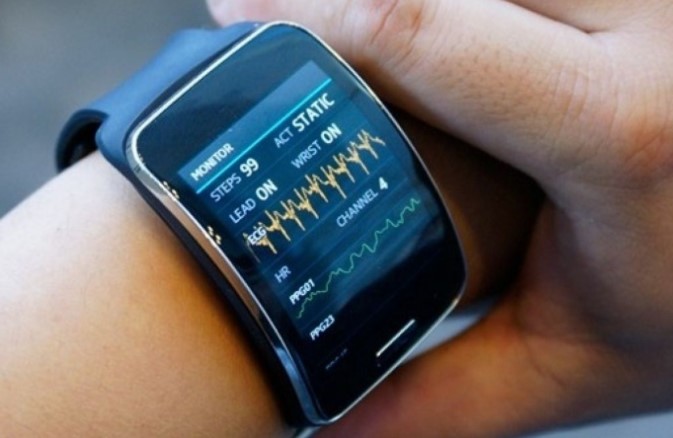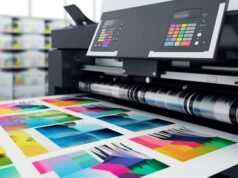Information technology has revolutionized many spheres of our lives: the healthcare systems around the world are not an exception. Modern hospitals and clinics are equipped with the latest technology to provide a faster, more efficient service to all of their patients. Furthermore, as technology advances, we’re getting improved and more accessible healthcare for all.
So, what does it all mean for the future of the healthcare industry? How has technology shaped today’s hospitals and medical equipment? Could the phenomenon potentially bring some disadvantages to the industry as a whole? What can modern hospitals do to adapt to these ever-growing changes?
Reducing the “human error”

Every professional is bound to make a mistake or two during their career. Unfortunately, in healthcare, those mistakes can make a difference between life and death. Doctors getting wrong pieces of information about their patients or acquiring important data too late in the process can have serious consequences to someone’s health and recovery.
Information technology allows a quick flow of information that keeps the hospital working properly, reducing the number of critical mistakes typically contributed to the “human error”.
Again, every modern hospital has digitalized medical records and utilizes high-quality software that helps doctors and nurses to do their jobs properly. Hospitals use big data not only to manage their patient’s records but also to simplify other processes including admission and employee management.
It helps with global health analysis and research
The advancements in technology allow international healthcare organizations like the WHO to conduct effective research and properly classify different diseases, which in turn helps improve the healthcare systems in every corner of the world. The tech helps medical professionals around the globe to cooperate on finding the best solutions for a variety of different diseases and conditions.
It’s what provided us with the means to stop the COVID19 pandemic by developing effective vaccines in record time. Collaboration and cooperation between medical researchers and analysts on a global scale would simply be too slow without the tech we have today.
Again, as the relevant tech advances, we’ll see many more improvements in the world of medical research and analysis. The two fields are deeply connected and they’ll continue to grow even closer in the near future.
It helps provide high-quality treatment for a lower price

Relevant medical technology and equipment have simplified many complex treatments in the past decade. Today, modern hospitals provide services that would’ve seemed impossible just a few years back. Moreover, it’s a trend that seems to be growing rapidly. We can only make predictions about the future of the industry, but it all points to a very bright one.
The change in the quality of certain treatments and therapies is extraordinary when the right tech is involved. It’s why many people decide to travel overboard just to get specific treatment that may be unavailable in their local hospitals. You can visit here to see an example of modernized hospital care and everything that goes with it.
Relevant tech has also allowed for cheaper hospital treatment by providing healthcare workers with faster ways to diagnose and care for their patients. Again, as the tech evolves, we’ll only see improvements in the ways hospitals operate and the care they provide.
It makes healthcare management more efficient
When people talk about hospitals and other healthcare institutions, they often forget about the importance the managerial role plays in their overall effectiveness. Hospital managers benefit from the use of modern technology as it helps them automate many different tasks to ensure the efficiency and productivity of the entire hospital staff.
Proper organization is key to quality healthcare services, and that’s exactly where information technology can help. There are many different software solutions that can help managers do their job much more quickly and efficiently.
Even if you don’t think it would make such a big difference, you’ll certainly feel it once you visit a modern hospital that relies on such technology. The effects it has on hospital care are enormous. As soon as medical professionals decide to switch to modern solutions in their respective healthcare institutions, we’ll certainly get better, more accessible healthcare in our countries.
Portable health monitoring devices

Information technology doesn’t only improve the medical services we get in the hospital, but also the ways we can know manage our conditions at home. Portable heart-rate and blood pressure monitoring devices are now accessible to the public, which helps both the medical professionals and their patients manage the condition more efficiently.
While the tech is still in development, the positive changes it brought to the healthcare industry are undeniable. It’s certainly going to be an important force changing the industry for the times to come. Again, if we want to enjoy the full benefits of the evolving medical tech, hospitals, and other medical institutions will need to adapt and modernize in the ways they operate.
Putting the patients first
As modern technology allows healthcare workers to do their jobs much more efficiently, it also provides the patients with improved care during their treatments. It simplifies many processes required for a hospital to run smoothly, allowing the staff to focus on what’s important: providing their patients with the care they deserve.
The hospitals willing to embrace and implement new technologies are proven to be more successful in treating their patients properly and providing crucial services that’ll make every treatment a success story.
Unfortunately, not all medical workers are willing to adapt to the growing trends the medical tech brings to the industry. It’s a widely unaddressed problem that affects millions of healthcare systems around the world.
The bottom line
Technology plays a crucial role in the development of modern healthcare systems. It improves each and every aspect of hospital care. Modern tech is advancing rapidly, so there’s still some room for additional improvements and development. Overall, we hope our article helped you understand the importance of tech in healthcare, and we wish you the best of luck in all of your future endeavors.









